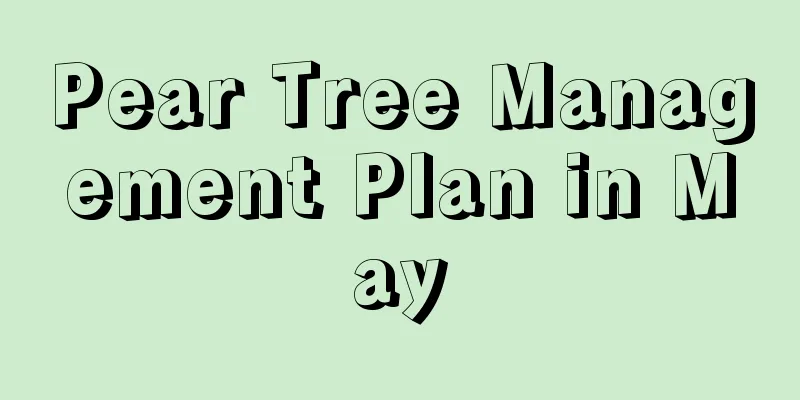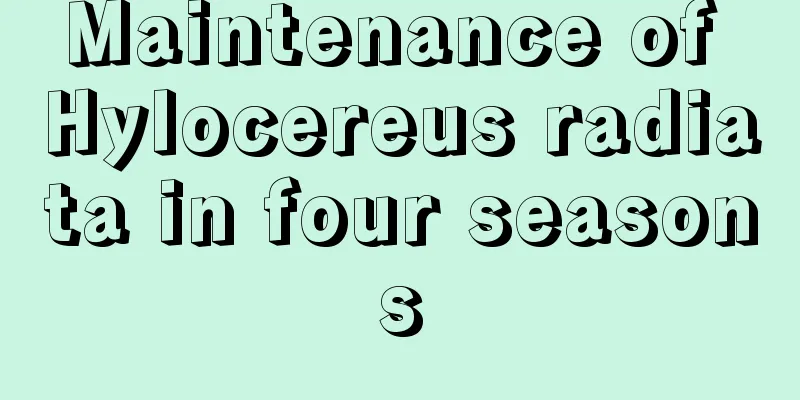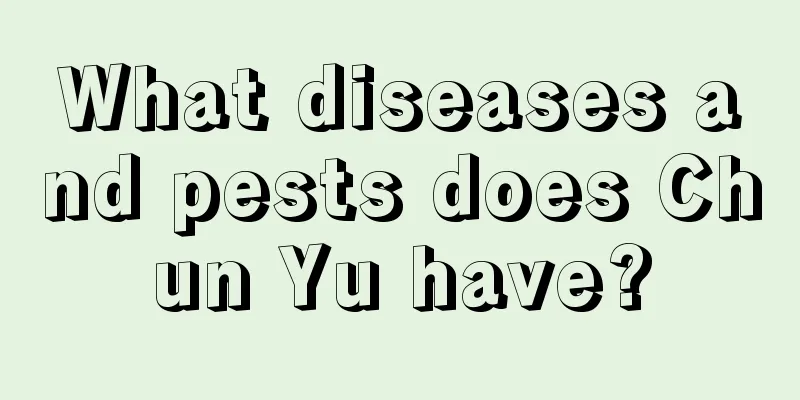Pear Tree Management Plan in May

|
Now it is May, which can be said to be the beginning of midsummer. Summer is a critical period for the growth of pear trees, and its climatic characteristics have a significant impact on the development of the branches, leaves, fruits and roots of pear trees. Pear orchard management requires special attention during this season. Learn about the management plan for May pear trees below. 1. Plastic surgery For new shoots with sufficient growth space, pinch them when they reach about 20 cm in length to promote the formation of fruiting branches. For pear trees with strong growth potential, retain an appropriate amount of leggy branches, and improve light conditions and promote flower bud formation through measures such as twisting and pulling branches. In mid-to-late May, ring-cut the main, side branches or supporting branches of young trees to promote flower bud differentiation. Before the new shoots become lignified, use toothpicks to prop up the base angle of the fruiting branches to about 80°, strengthen fertilizer and water management, and promote flower bud formation and early fruiting. 2. Fertilizer and water management From late May to early June, before flower bud differentiation, apply special fertilizers for fruit trees with phosphorus and potassium as the main components and nitrogen as the supplement, depending on the age of the trees and the amount of fruit produced, and irrigate in time. Combined with disease and pest control, urea or potassium dihydrogen phosphate should be sprayed regularly to meet the fruit's needs for water and nutrients. 3. Orchard management As the temperature rises, loosen the soil and weed in time to maintain soil moisture and prevent excessive weed growth. Orchards with the necessary conditions can carry out orchard mulching, using wheat straw to cover the spaces between fruit tree rows or in tree trays to improve the soil environment. 4. Fruit bagging Bagging can effectively improve the appearance quality of fruits, reduce pests and diseases and pesticide residues, and improve fruit safety and market competitiveness. Bagging should be completed within 25 to 45 days after flower fall, and insecticides and disease control agents should be sprayed 5 to 7 days before bagging. 5. Pest and disease control During the young fruit stage, the focus is on preventing and controlling rust, black spot, ring rot and pear psyllid , etc., by manually removing diseased and insect-infested shoots and spraying pesticides such as mancozeb and carbendazim. During the long shoot growth period, use Dasheng M-45, Xinwansheng, Subaoli and other agents to prevent and control black spot disease, black spot disease, pear rust, as well as pests such as pear psyllids and aphids. During the fruit expansion and ripening period, continue to prevent and control black spot disease, ring rot, rust and fruit borer, using Bordeaux mixture and pyrethroid pesticides for prevention and control. In short, through comprehensive management, we can ensure the healthy growth of pear trees during the critical growing period of summer, laying a solid foundation for improving fruit quality and yield.
|
<<: How to plant coconut? Can it be planted in pots?
>>: Cultivation methods and precautions of Baolian Denghua
Recommend
The culture technology of Penaeus vannamei in high-position pond
The high-level pond farming of whiteleg shrimp is...
Can roses be pruned in summer (how to prune roses if they have a bad plant shape)
Can roses be pruned in summer? I personally prune...
Time and method of cutting of tiger skin orchid
Tiger Pilan cutting time If you want to propagate...
How to treat grape yellow spot disease and what medicine to use
1. Causes It is infected with xanthophyllosis mos...
Can aloe leaves survive by being planted?
1. Can be plugged in Aloe vera leaves can be plan...
Can moxa ash be used as fertilizer?
Mugwort ash as fertilizer Generally, mugwort ash ...
How to grow the tree ice succulent
Juhyo Succulent Growing Conditions The tree ice s...
What are the varieties of wheat seeds? Which variety of high-quality wheat is good?
Wheat is one of the important food crops in my co...
How to transplant Osmanthus fragrans
Transplanting time of Osmanthus fragrans Transpla...
How to care for the Butterfly Dance succulent
Butterfly Dance Succulent Growing Conditions Butt...
The legend of lotus
The legend of lotus on March 3 Once upon a time, ...
What fertilizer is good for gardenia?
1. Is the fertilizer requirement high? Generally ...
What are the signs of miniature coconut palm blooming? How to grow it to make it bloom
1. What are the signs of flowering? The dwarf coc...
What kind of feed should be fed to farmed crucian carp?
Crucian carp is a freshwater fish that is rich in...
How to grow Maru-Leaf Pine Green
1. Soil It is best to use loose and breathable so...









